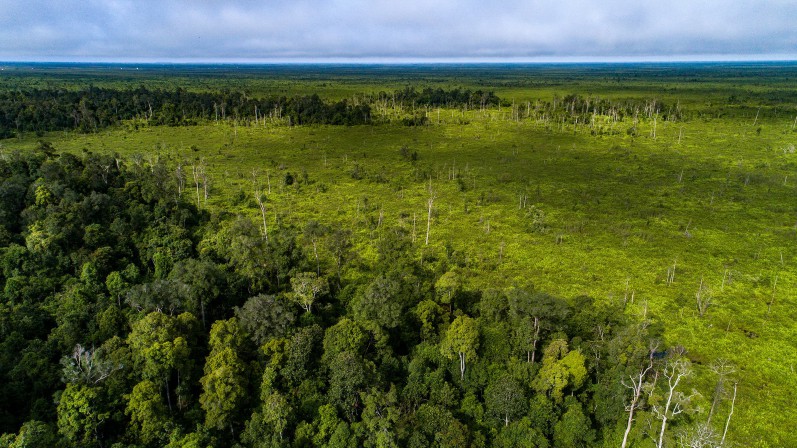Enduring Pressure from Landlords and Oil Palm Plantations in Lebak Lebung
By Siti C dan Muki WTips on Choosing a Governor for Regions Involved in Pantau Gambut Activities
Elections for Indonesian regional governors will take place on 27 June 2018, followed by the national presidential election in 2019. In the lead up to this, candidates actively campaign for their programs, vision, and mission, aiming to convince the public to elect them as governors.
Every candidate pair has developed their own way of captivating citizens in their respective regions with photos, slogans, and messages broadcast as parts of their campaign. To date, money to buy votes seems to be the dominant factor that will determine the outcome of regional gubernatorial elections. Many Indonesians still vote based on expected personal gains, rather than candidates’ visions and missions.
It is important to remember that the future of Indonesia is in the hands of voters. If we want Indonesia to have a good government system, we must choose leaders who can truly fight for the our homeland by, among other things, advocating for peatlands in the archipelago.
Why peat?
Peat plays an important role in mitigating climate change, reducing the impact of natural disasters, protecting biodiversity, and supporting local economies. Plants and animals native to peatlands are a source of food and income for surrounding communities. Peatland communities often sell natural products grown in peatlands – such as coffee, timber, medicinal plants, and livestock – to sustain themselves. They also produce handicrafts made from endemic peatland plants such as purun. Peat is not only an environmental issue, but is also important to the economy.
Healthy gubernatorial elections
Most people base their vote on “the money factor”. According to the 2013 Corruption Eradication Commission survey, 71.72% of Indonesians consider buying votes to be commonplace in elections. This ultimately creates a society in which people are driven by profit, pushing political candidates toward corruption.
If we as voters can make the right choice in elections, the government system will run better. So, what makes voters choose candidates who advocate for peatlands and environmental sustainability?
- Properly understand candidates’ visions, missions, and programs. Choose candidates who specifically address environmental issues and peatland issues in a realistic way, so that their promises can be achieved and the public can monitor progress.
-
Analyze candidates’ integrity, capacities, and capabilities. If a candidate’s vision, mission, and programs are good, then consider how they will impact their campaign promises. Choose candidates with strong integrity, capability, and capacity.
-
Avoid bribes. During campaign season, buying votes is something that occurs in both gubernatorial and presidential elections. We must transform our collective mindset about this by not choosing candidates who bride their constituents.
-
Choose candidates who do not have a history of corruption. Indonesia Corruption Watch recorded as many as 215 governors suspected of corruption between 2010 and 2017. Before voting, we must study candidates’ backgrounds to familiarize ourselves with their political track record.
-
Choose candidates who are engaged in environmental and peatland issues. One way to learn whether a candidate advocates for environmental issues is to check their activity on social media.




